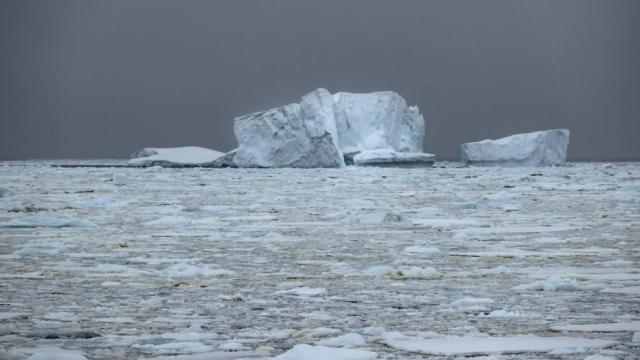Unusually warm temperatures broke several records in both Antarctica and the Arctic late last week. The Concordia research base in Eastern Antarctica, one of the most remote research facilities in the world, reported temperatures at around -11 degrees Celsius or about 11 degrees Fahrenheit. That’s 70 degrees Fahrenheit higher than usual on the icy continent.
Over at the North Pole, temperatures reached new heights at around the same time. According to tweets from a climate scientist at the Norwegian Meteorological Institute the mercury hit around 3.9 degrees Celsius, or 39 about degrees Fahrenheit. That’s 50 degrees F (30 degrees C) higher than normal, not to mention higher than the point at which ice melts.
Université Grenoble Alpes post doc researcher Jonathan Wille tweeted that, at around this time of the year, temperatures are supposed to be falling in Antarctica, especially after the South Pole’s summer solstice has already passed and days start to become noticeably shorter. “This is [like] a Pacific Northwest 2021 heatwave kind of event,” he tweeted. “Never supposed to happen.”
Researchers told the Associated Press that the temperature spikes can’t always be attributed to the climate crisis — yet. Zachary Labe, a climate scientist at Colorado State University who specialises in studying the Arctic, explained that some factors in both warming events are regular occurrences, while other factors are connected to climate change.
“These plumes of moisture and heat that move into the Arctic and Antarctic…that’s a normal mechanism,” Labe told Earther. “These events were particularly extreme, and they happened at the same time, which could be just by chance, because they’re in completely different hemispheres.”
The Washington Post reported that satellite imagery from the Modèle Atmosphérique Régionale, a climate model that helps scientists study ice melt at the poles, showed that there was snow and rain during the heat wave in Antarctica. Labe explained that atmospheric rivers brought the warm moist air to the poles.
Moisture brought to Antarctica from the storm couldn’t escape the area due to a a high-pressure system. “I think the Antarctic event was a little longer in duration because high [pressure] essentially trapped that warm, moist air,” he said. Those systems are often known for keeping storms away, but they can trap high temperatures, making a heat wave more likely to happen, according to the National Oceanic and Atmospheric Administration. Something similar occurred in the Arctic as well, Labe said.
Labe also said that the heat events would connect to climate change differently, due to the unique geography of each pole. The Arctic is an ocean surrounded by landmass, and it’s easier for researchers to connect some variables in that region to the changing climate. But Antarctica is a frozen landmass surrounded by ocean, which creates different weather conditions and more variability, so its harder to pinpoint different melting events or weather changes specifically to climate change, he said.
Labe stressed that, though these extreme events make headlines, trends over time are what really tell the story about how the climate crisis connects.
“In the Arctic, we’re finding that… this type of event may be happening more frequently. And that would have big implications for affecting the ecosystem of the Arctic, affecting sea ice,” he said. “Seeing more and more of these warm air events in the Arctic, in the winter, is definitely eye-opening as a climate scientist.”
